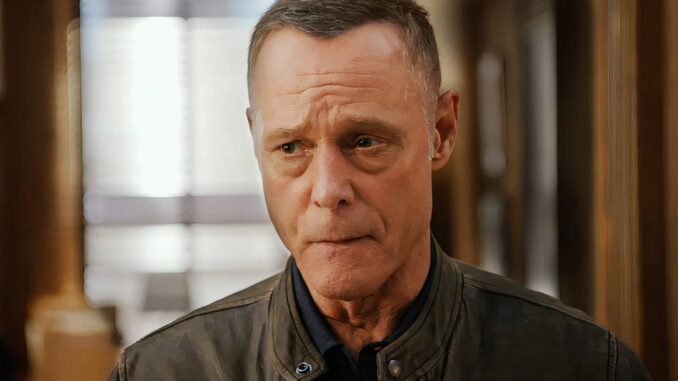
The Lines Blurring: Why Chapman's Approach to Voight in the Chicago PD Season 12 Finale Was Justified
The simmering tension between Samantha Chapman and Hank Voight finally boiled over in the Season 12 finale of Chicago PD, leaving viewers divided. While Voight's morally ambiguous methods have long been a cornerstone of the show, Chapman's hardline approach, culminating in [Insert specific action taken by Chapman in the finale, e.g., attempting to arrest Voight, reporting him to Internal Affairs, etc.], felt like a betrayal to some. However, a closer examination reveals that Chapman's actions, while controversial, were ultimately justified, stemming from a legitimate concern for the integrity of the Intelligence Unit and a desperate attempt to prevent Voight from crossing a line he might never be able to return from.
For years, Voight has operated in a grey area, bending the rules, blurring the lines between justice and vengeance, and often resorting to tactics that would make even seasoned criminals wince. This has, undoubtedly, led to the resolution of countless cases and the protection of countless lives. Yet, this vigilante style comes at a cost. The erosion of ethical boundaries, the cultivation of a culture of fear and complicity, and the potential for catastrophic misjudgment are all inherent dangers when one person wields unchecked power. Chapman, a relative newcomer to the unit, has been witnessing this firsthand, growing increasingly uneasy with Voight's disregard for due process and his willingness to sacrifice individuals for the greater good.
One might argue that Voight's ends justify his means, that the city is safer because of his methods. However, this argument ignores the slippery slope that comes with unchecked power. Consider [Insert a specific example from the season where Voight's actions had negative consequences, even if unintentional, e.g., framing an innocent suspect, covering up a mistake, pushing a witness too far]. This instance, and others like it, highlight the inherent flaw in Voight's approach: the potential for innocent lives to be caught in the crossfire, the risk of irreversible damage inflicted in the pursuit of justice. Chapman recognizes this danger. She understands that allowing Voight to operate without oversight ultimately undermines the very system he claims to protect.
Furthermore, Chapman's perspective as an outsider provides a crucial counterweight to the established culture within Intelligence. The other members of the team, bound by loyalty and perhaps a degree of Stockholm syndrome, have become accustomed to Voight's methods, even complicit in their execution. They may question him privately, but rarely challenge him openly. Chapman, however, is not beholden to the same ingrained loyalties. She sees the ethical compromises with fresh eyes, recognizing the potential for abuse and the long-term damage inflicted on the integrity of the unit. Her actions, therefore, are not driven by personal animosity, but by a genuine concern for the moral compass of the entire team.
Ultimately, Chapman's actions in the season finale represent a desperate attempt to save Voight from himself. She witnesses him teetering on the edge of a moral precipice, consumed by [Insert Voight's motivation in the finale, e.g., revenge, grief, a perceived threat to the city]. She sees the potential for him to cross a line that will forever taint his legacy and irrevocably damage the Intelligence Unit. By [Insert specific action taken by Chapman], she is not seeking to punish Voight, but rather to force him to confront the consequences of his actions, to reconsider his methods, and to choose a different path.
While some may view Chapman as a disloyal antagonist, her actions in the Season 12 finale are ultimately a necessary intervention. She represents a critical voice of reason, a challenge to the status quo, and a plea for a more ethical and accountable approach to law enforcement. Her attempt to rein in Voight, however drastic, highlights the inherent dangers of unchecked power and serves as a reminder that even the most dedicated protectors can be led astray, requiring a vigilant conscience to guide them back on course. The question now remains, will Voight heed Chapman's warning, or will he continue down a path that threatens to consume him entirely? The answer will undoubtedly shape the future of the Intelligence Unit and the city it protects.
